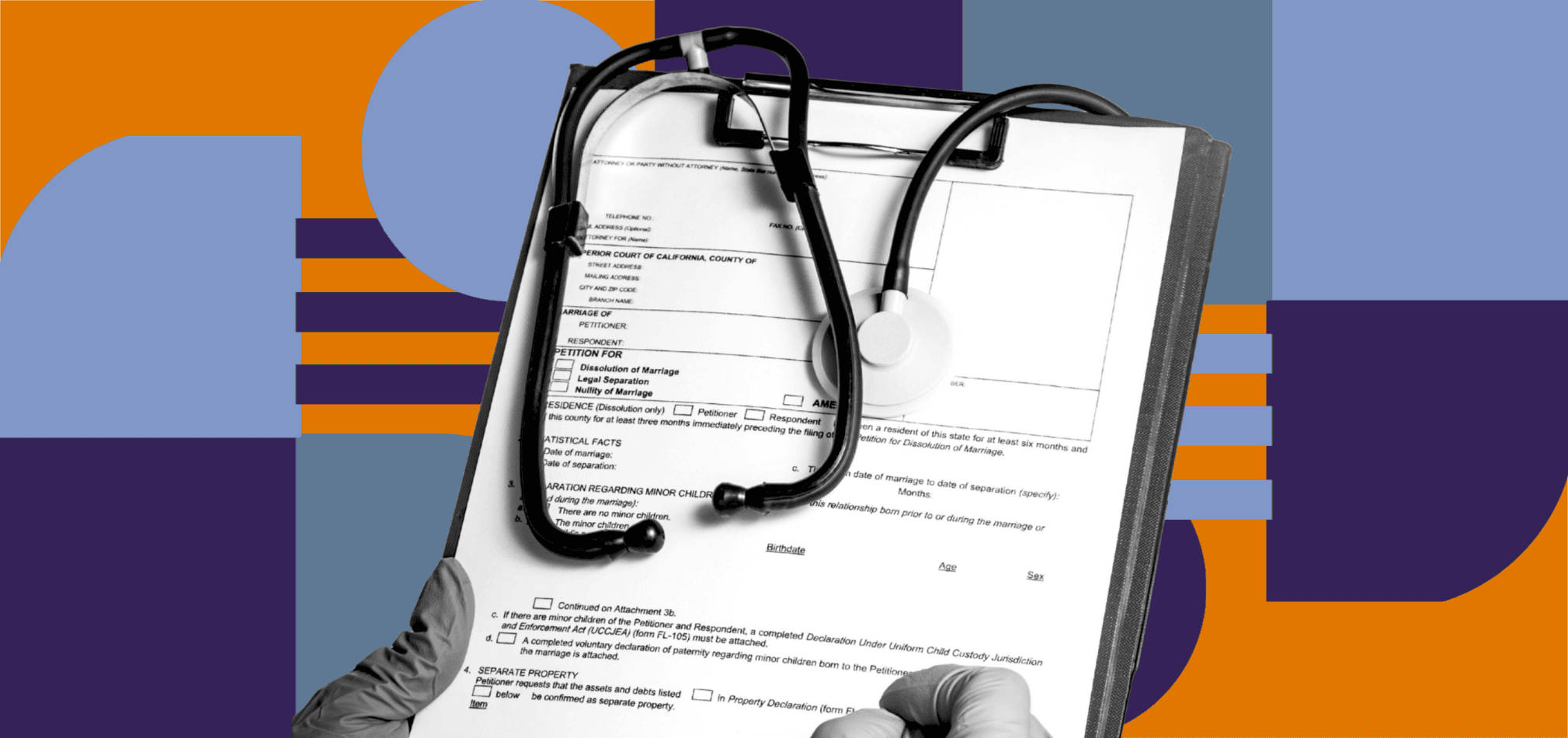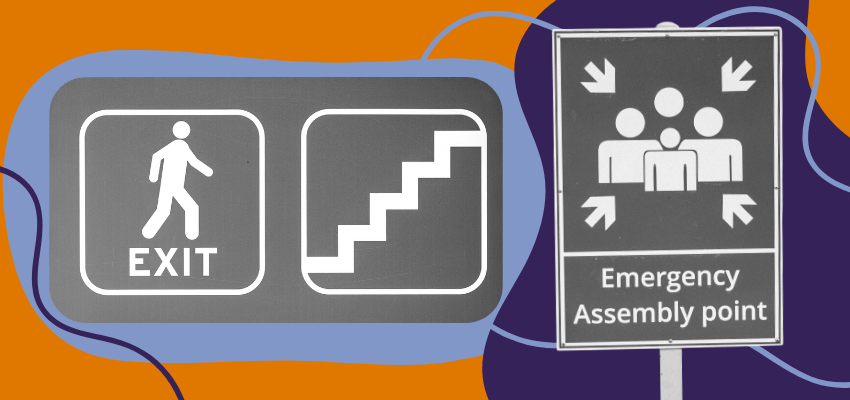What Are QAPI Meetings & How Do They Work in Home Health & Hospice?
November 3rd, 2025
3 min read
By Abigail Karl

Quality Assurance and Performance Improvement (QAPI) meetings are one of those things every home health and hospice agency knows they’re supposed to do, but very few feel confident about. Some agencies scramble once a quarter to throw together data. Others hold meetings that feel more like casual conversations than structured reviews. And many quietly wonder:
- What exactly are we supposed to cover?
- Are we picking the right topics for improvement?
- Is our QAPI process defensible if anyone ever asks to see it?
The confusion isn’t your fault. QAPI is one of the most misunderstood areas of agency operations. This isn’t because it’s hard, but because nobody ever explains what it should actually look like in real life.
*This article was written in consultation with Mariam Treystman.
At The Home Health Consultant, we’ve helped hundreds of agencies take QAPI from “check-the-box” paperwork to a meaningful system for clinical and operational improvement.
In this guide, we’re breaking it down with clarity and zero fluff. You’’ get real insight from our co-founder Mariam Treystman, who’s taught QAPI strategy to hundreds of agencies just like yours.
What Is the Purpose of a QAPI Meeting?
A QAPI meeting is a structured session where your agency reviews how well it is operating (clinically and operationally) and identifies topics for performance improvement.
As our co-founder Mariam Treystman explains:
“The QAPI committee needs to review all the major functions and processes of the agency, find critical safety and healthcare quality issues, and address them as soon as possible.”
These meetings are not a formality. They are how you maintain clinical standards, monitor care delivery, and drive improvement.
Who Should Be on a QAPI Committee?
The QAPI committee is made up of agency leaders selected by your governing body. The structure will depend on the size of the agency:
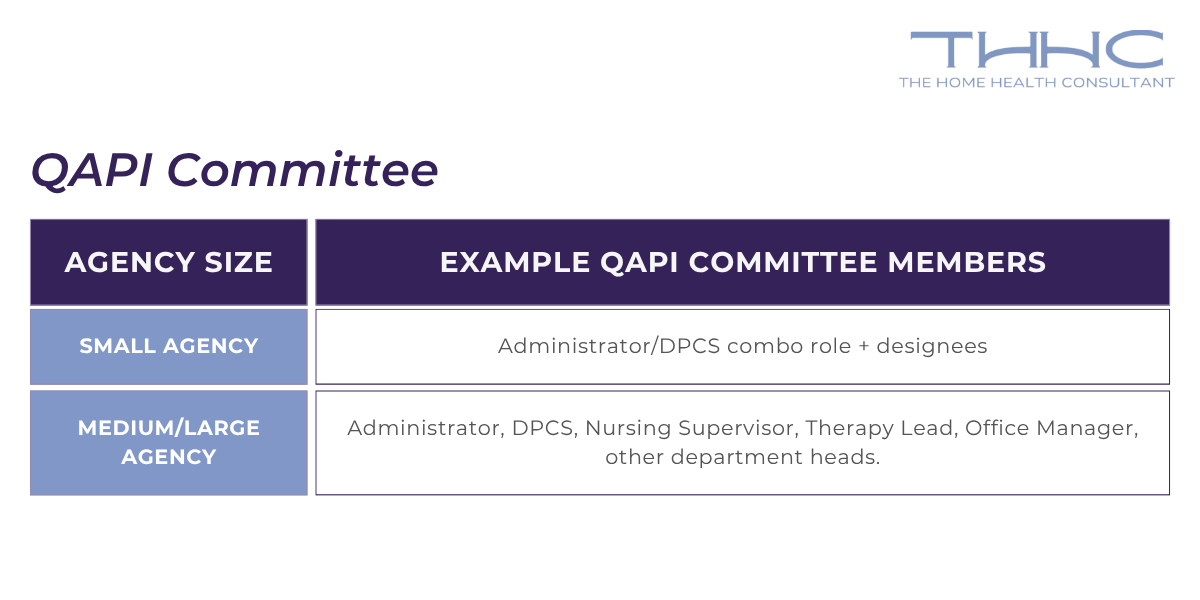
The key is this: QAPI must represent the entire organization, not just clinical leadership. Every core function must have a voice in quality improvement.
How Often Should QAPI Meetings Be Held?

QAPI meetings must be held at least quarterly. More frequent meetings are allowed (and often helpful), especially when active performance issues need monitoring.
“They can meet monthly or whatever it is that your agency feels is important, but they cannot meet less often than quarterly.” — Mariam Treystman
What Topics Are Discussed During QAPI Meetings?
Based on the QAPI training transcript, meetings consistently review four major categories:
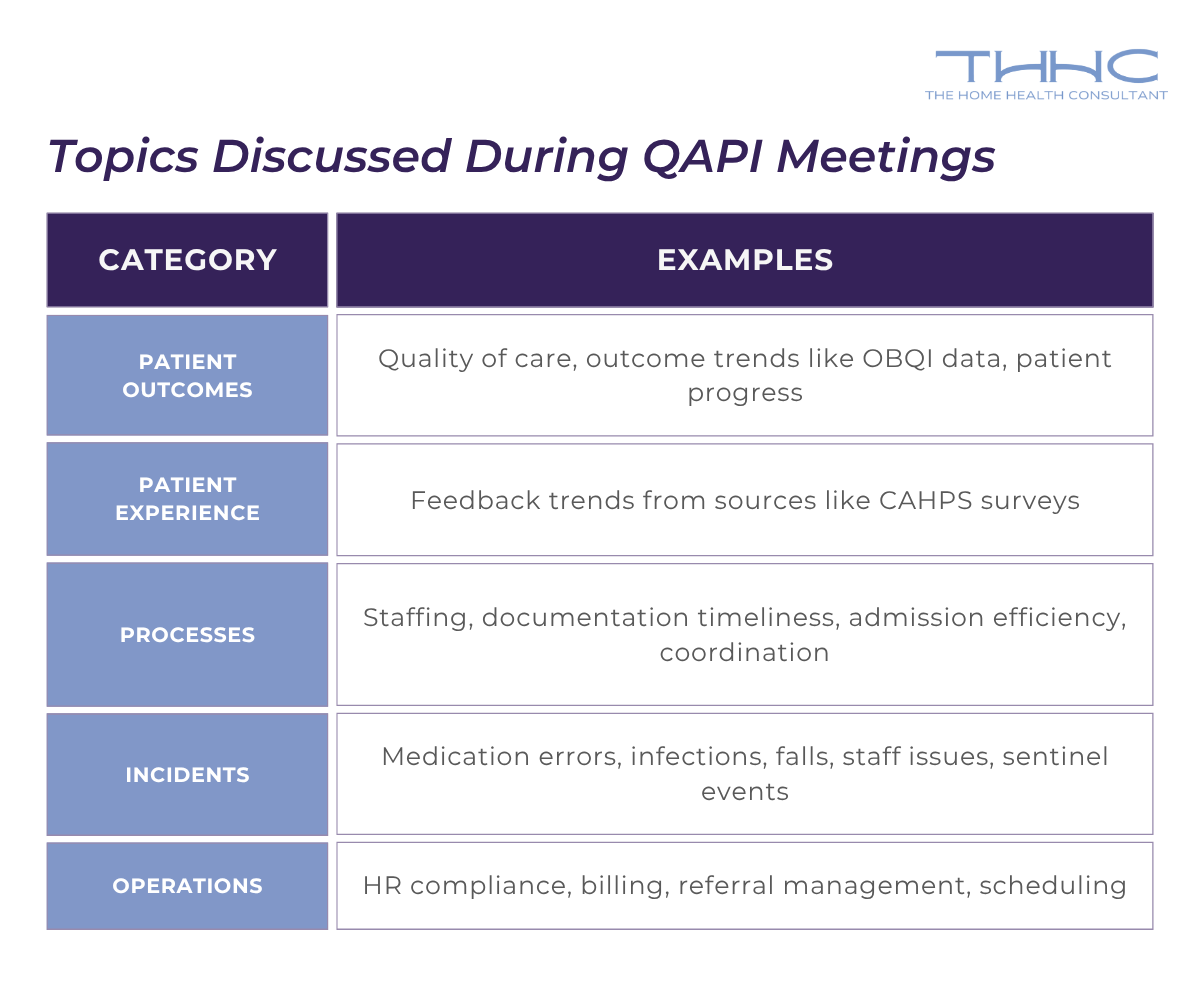
What Data Is Used in a QAPI Meeting?
QAPI decisions must be based on data, not assumptions or opinions. Common data sources include:
- Chart audits
- Incident reports
- Staffing and scheduling reports
- HR file reviews
- Patient feedback
- OBQI/iQIES reports
- CAHPS survey results
However, standardized reports alone aren't enough, it’s important to track your own data internally.
“CMS data is six to eight months behind… so you need to do additional chart auditing manually to keep track of results.” — Mariam Treystman
Real-time visibility requires pulling your own data between official reporting cycles.
Why Do Agencies Struggle With QAPI?
From working with agencies across the country, here are common QAPI mistakes:
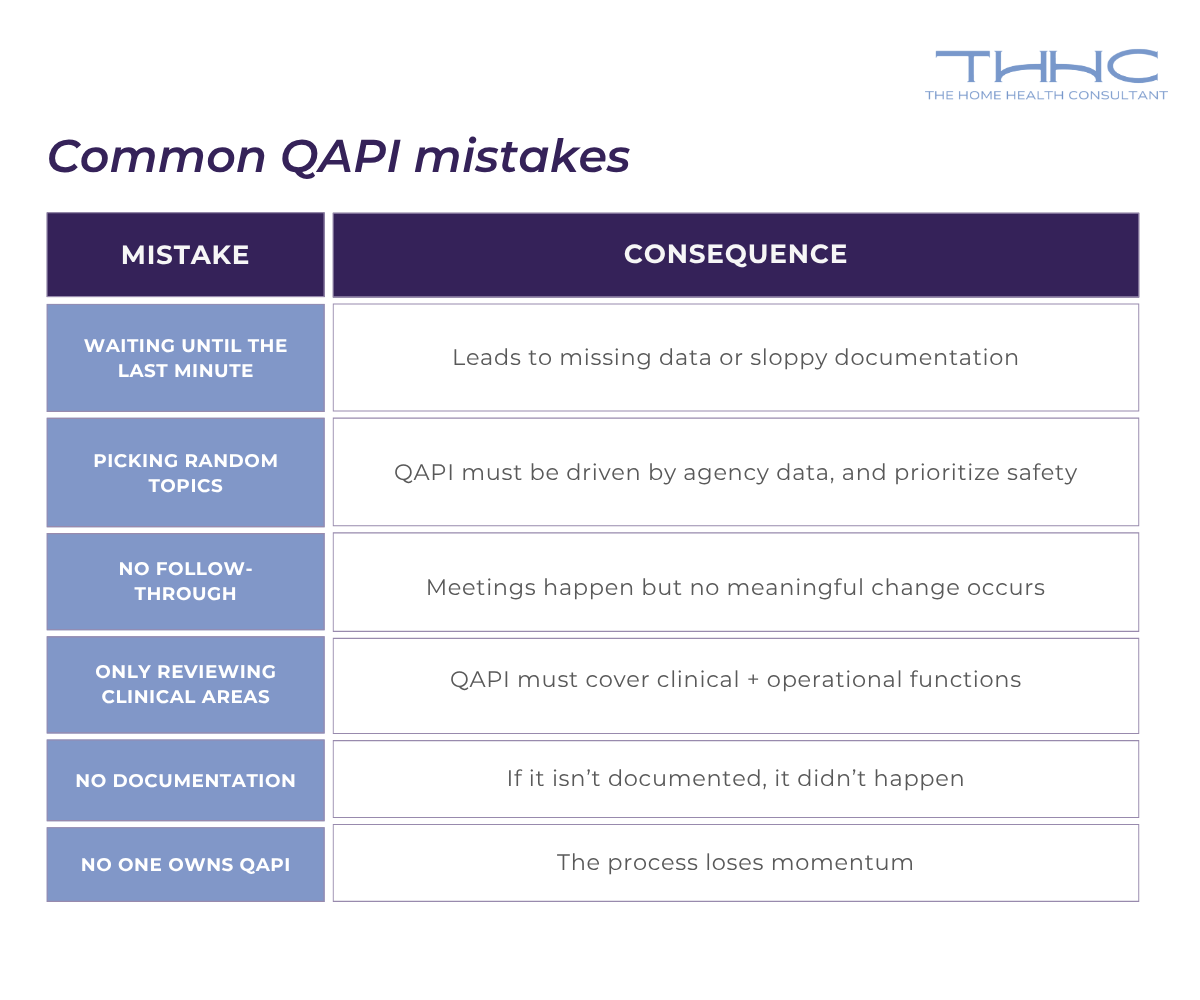
What Does a Strong QAPI Meeting Look Like?
A successful QAPI meeting follows a predictable structure:
- Review agency data and trends
- Discuss safety issues or incidents
- Evaluate operational challenges
- Analyze patient outcomes and satisfaction
- Select or monitor QAPI topics
- Create or update action plans
- Assign accountability
- Present summary to governing body
Who Should Manage QAPI Documentation?

In the chaos of the day-to-day, when patient care is (rightfully) your number one priority, it’s easy to understand how QAPI gets pushed to the back burner. But that doesn’t make it okay.
To avoid this, we recommend assigning someone to be the organizer of QAPI who is not the committee leader.
“The committee head should not be the person responsible for making all the materials… someone else needs to compile everything, keep it organized, and make sure it moves.”
This role acts as a QAPI coordinator, helping collect data, maintain logs, track task follow-ups, and prevent QAPI from becoming disorganized.
How Can Home Health & Hospice Agencies Make QAPI Easier and More Effective?
QAPI isn’t just about forms and data. It’s about reviewing how your agency functions and making decisions that improve care and operations. Meetings must include real data, documented decisions, and a plan that actually moves things forward.
If your QAPI process feels overwhelming or unclear, that’s a signal, not a failure. It means your team needs structure, tools, and a process that fits how your agency actually works.
If you want a QAPI process that’s organized, easy to follow, and proven to work quarter after quarter, our Administrative Compliance Program (ACP) includes structured QAPI support, templates, topic development tools, chart audit systems, and quarterly review coaching.
Want to see exactly how our method works? Read about Our Proven Process to see if the Admin Compliance Program is right for you.
*Disclaimer: The content provided in this article is not intended to be, nor should it be construed as, legal, financial, or professional advice. No consultant-client relationship is established by engaging with this content. You should seek the advice of a qualified attorney, financial advisor, or other professional regarding any legal or business matters. The consultant assumes no liability for any actions taken based on the information provided.
Topics:











